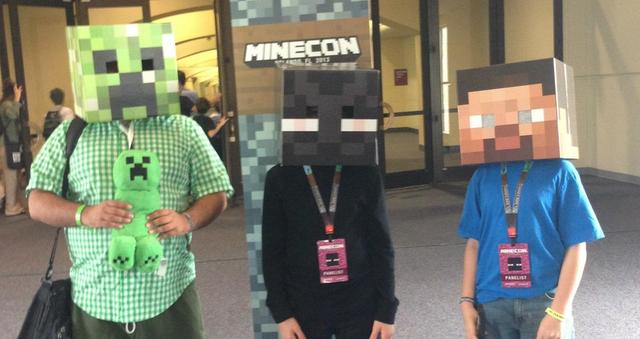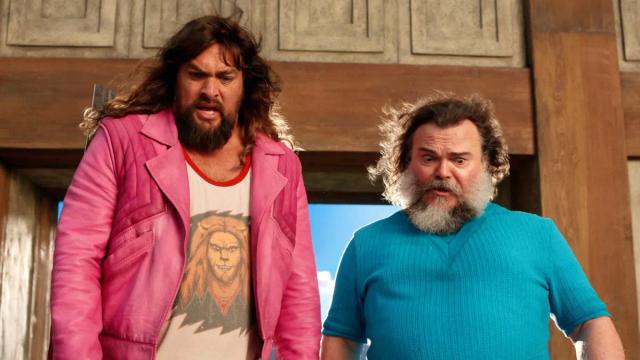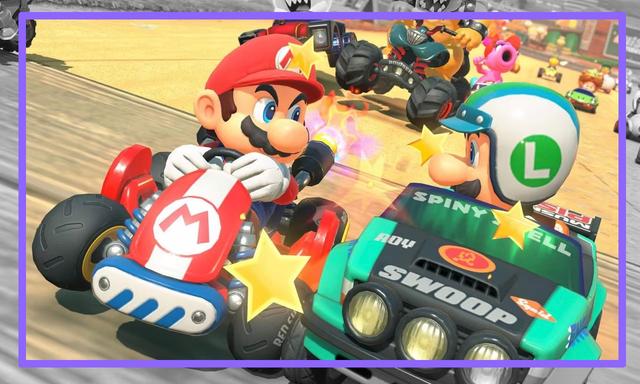If you click on a link and make a purchase we may receive a small commission. Read our editorial policy.
Dune: Prophecy isn't just a Bene Gesserit origin story. It's essential viewing before Denis Villeneuve's Dune: Part Three
Denis Villeneuve's Dune: Messiah adaptation is still a long way away (in our universe and theirs), but the Bene Gesserit's origins in Dune: Prophecy begin a moral arc that will culminate in what Frank Herbert called the "bottom line"of the saga

Popverse's top stories of the day
- Disney & Lucasfilm are quietly planning a 50th anniversary Star Wars movie that's focused on all-new characters
- MEMBERS ONLY: Follow along live to the Mandalorian & Grogu movie panel from Star Wars Celebration Japan 2025!
- WATCH NOW: The gentleman villain Mads Mikkelsen tells us how he balances being charming and despicable in our favorite movies & TV series
Spoilers for Dune: Prophecy and potentially Dune: Part Three follow.
Greetings Popversians, and welcome to Lore Corner! Each week, video producer Ashley V. Robinson and staff writer Grant DeArmitt are going to take you deep into the preexisting lore behind some of pop culture's most exciting adaptations, such as the epic, spacefaring universe of Dune: Prophecy. Happy diving!
So, you've seen Dune: Part One and Part Two, and now you finally get to step back into the world originally created by Frank Herbert all the way back in 1963. I'd bet you're excited to hear more about the Bene Gesserit, aren't you? Or possibly to experience some of the ancient history referenced by the Dune characters for yourself? We're pleased to report that Dune: Prophecy scratches those itches, but HBO's new prequel series serves as more than just that.
Not only does Dune: Prophecy fill in what's come before Denis Villeneuve's groundbreaking space opera epic Dune, but it's is absolute essential viewing to understand the point of its next chapter. Let us explain.
What do the Bene Gesserit want in Dune: Prophecy?

If you watched the premiere episode of Dune: Prophecy, then you've already met Valya and Tula Harkonnen, Mother Superior and Reverend Mother respectively of the Bene Gesserit. You've heard them claim that their purpose is to redeem the name of House Harkonnen after the disastrous war between humanity and the "thinking machines" that controlled it, but as you can tell by the... shall we say, "fiery?"... end of the episode, their purposes are a little bit darker than that claim would have you believe.
What we'll come to find out is that the Bene Gesserit's ultimate goal is to put one of their own on the imperial throne, via the selective breeding of a messianic figure called the "Kwisatz Haderach." This long-expected heir is the subject of the series titular "prophecy," and as you know if you've seen either of Denis Villeneuve's Dune films, the prophecy will eventually be fulfilled some 10 millennia later by Paul Atreides, who is able to access the psychic powers of the Bene Gesserit despite being male.
But here's the thing: just because the Bene Gesserit will eventually succeed in creating their messiah doesn't mean they will have done something good for the galaxy. In fact, that's not just seemingly the point of Dune: Prophecy - it's the point of the entire Dune series as a whole.
What is the point of Frank Herbert's Dune: Messiah?

Ok, let's back up for a second. In case you haven't heard, Dune: Part Three is absolutely on the way, and as Popverse reported all the way back in February, the basis of the third film will be creator Frank Herbert's Dune: Messiah, the direct sequel to his original Dune novel. In the book, an older Paul Atreides succeeds in defeating his enemies from the first story, but at a horrible cost. Paul has unleashed a bloody jihad throughout the galaxy, placing himself atop a throne of civilizations culled to feed his empire. 10,000 years after the Bene Gesserit started their dark crusade, their Kwisatz Haderach only ushers in more darkness.
It's tempting to watch the epic battle scenes and bravery of the first two Dune movies and not square them up with the shadowy machinations of Dune: Prophecy, but as Frank Herbert himself would agree, the latter really is the ultimate point of his Dune novels. "The bottom line of the Dune trilogy is," Herbert once told an interviewer, "beware of heroes. Much better [to] rely on your own judgment, and your own mistakes."
And as we've already seen in HBO's new sequel series, those that rely on the heroes built up by the Bene Gesserit are in for a pretty grim future.
Dune: Prophecy is streaming on Max now, with new episodes dropping every Sunday night on HBO. Then, the nerds over at Popverse's Lore Corner will be breaking down some easter eggs, need to knows, and possible predictions each episode; be sure not to miss either.
Face your fear, and permit it to pass over you and through you with our key guides to all things Dune:
- Dune: Part Two's ending explained,
- All the Dune sequels and TV show prequels that are planned
- Dune watch order
- Which Frank Herbert story Denis Villeneuve believes would make a great Dune: Part Three
- Movies to watch after you've finished Dune
- Sisterhood of Dune ending explained: Understanding the book that Dune: Prophecy was based on
After reading it all, turn to the inner eye to see its path.
Follow Popverse for upcoming event coverage and news
Find out how we conduct our review by reading our review policy
Let Popverse be your tour guide through the wilderness of pop culture
Sign in and let us help you find your new favorite thing.
















Comments
Want to join the discussion? Please activate your account first.
Visit Reedpop ID if you need to resend the confirmation email.